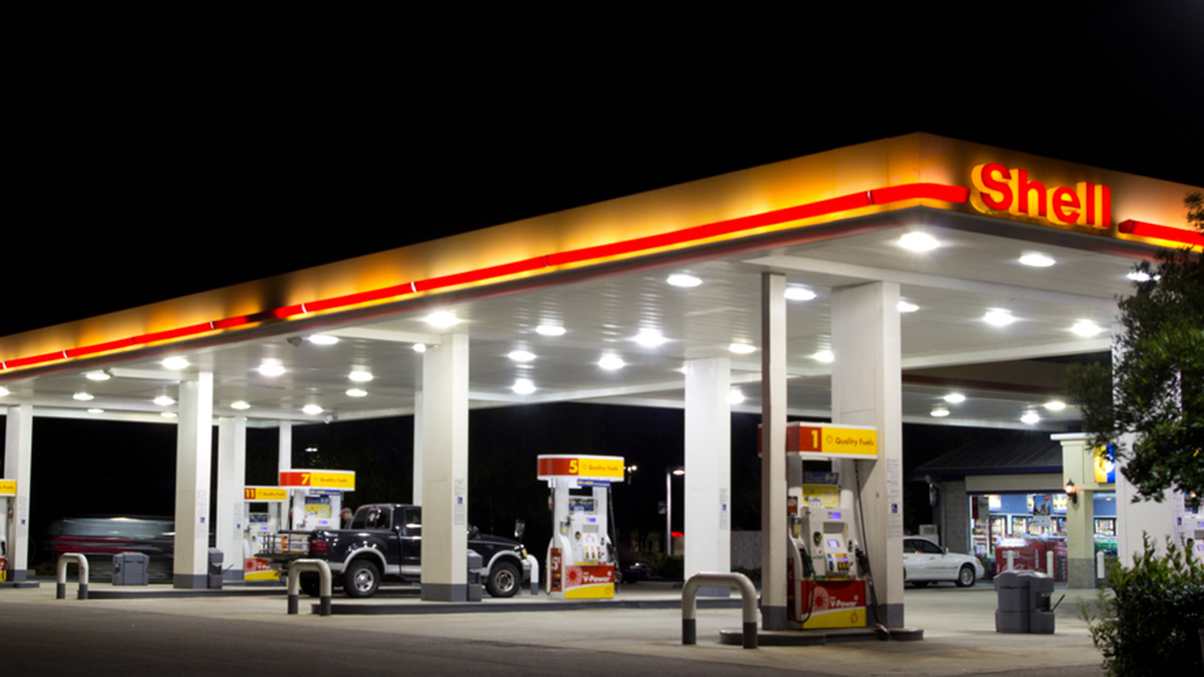A second judgment has been given in the high-profile dispute between ClientEarth and Shell regarding breach of directors’ duties in relation to Shell’s climate strategy.
Having initially refused permission for ClientEarth to proceed with its derivative claim on the papers, the court heard its oral appeal. Mr Justice Trower ruled that in both its written and oral submissions, the non-governmental organisation (NGO) had failed to establish the prima facie case necessary to bring its claim.
Commercial Litigation partner Elaina Bailes, associate Matt Caples and senior paralegal James Boissier consider the nature of claims for breach of a director’s statutory duty to promote the success of the company (under s172 of the Companies Act 2006 (“CA 2006”) and, in particular, the test of “good faith”.
ClientEarth’s arguments
ClientEarth relied on two statutory duties owed by the directors to Shell – the duty to promote the success of the company under s172 and the duty to exercise reasonable care, skill and diligence under s174 of the CA 2006. ClientEarth argued that the directors also owed various “incidental duties” that arose when considering the climate risk faced by a company such as Shell. This included both “a duty to ensure that the strategies adopted to manage climate risk are reasonably in the control of both existing and future directors” and “a duty to adopt strategies which are reasonably likely to meet Shell’s targets to mitigate climate risk”.
The court identified this as a “subtle but important shift” in how ClientEarth was making its case at the oral hearing. Having initially maintained that the directors were always subject to these duties when making commercial decisions, ClientEarth argued that these duties arose logically once the directors had identified that their climate strategy was a commercial objective which promoted the success of Shell. The court should therefore be able to intervene and give directions as to how the board should implement that climate strategy.
The court disagreed with this submission, finding that an attempt to impose specific obligations on directors in relation to climate change was “incompatible with the subjective nature of the duty under s172”. Mr Justice Trowers said this argument went against the “basic principle of company law that it is for the directors themselves to determine the weight to be attached to the non-exhaustive list of factors referred to in s.172”. To do otherwise was inconsistent with the well-established principle that it is for directors to determine (in good faith) how best to promote the success of a company for the benefit of its members as a whole. The question then, is whether a lack of good faith could be deduced from the nature of the decisions being made, the court needed to consider the test to be applied when determining whether there had been a breach of s172.
The test for a breach of s172
The test:
- is a subjective one (see Regentcrest Plc v Cohen [2001]); and
- requires a finding that the directors did not act in good faith when concluding an act or omission was in the company’s best interests.
The court must decide whether the directors honestly believed their act or omission was in the best interests of the company.
ClientEarth alleged that the directors of Shell implemented a climate strategy that was incapable of meeting the net zero energy target they had set. Thus, their decisions were irrational and could not have been made in good faith. The court was keen to emphasise the lack of existing authority for finding a breach of s172 based on “irrationality” alone. In his judgment, Mr Justice Trower said that “good faith, not irrationality, is the cornerstone and an honest but unreasonable and mistaken belief that a particular course of action is in the company’s best interests is not sufficient to amount to a breach of s172”. That is not to say irrationality is not a factor when considering the evidential question of whether directors have acted in good faith.
While the good faith test is undoubtedly subjective, some elements can be objectively assessed. For example, in Re HLC Environmental Projects Ltd [2013], the court said: “… the subjective test only applies where there is evidence of actual consideration of the best interests of the company. Where there is no such evidence, the proper test is objective, namely, whether an intelligent and honest man in the position of a director of the company concerned could, in the circumstances, have reasonably believed that the transaction was for the benefit of the company.” That objective test is said to apply either “(i) if there is no evidence of the director having considered what will promote the success of the company; and (ii) if a very material interest has been overlooked.”
It isn’t clear from the judgment that it was alleged that either of these circumstances apply such that an objective assessment ought to be undertaken.
The need for expert evidence
In both judgments, the court highlighted the need to establish a prima facie case at the permission stage of a derivative action; a prima facie case being “a case that, in the absence of an answer by the defendant, would entitle the claimant to judgment” (Abouraya v Sigmund [2015]). The court made it clear that where the good faith of directors’ decision-making is at issue, expert evidence may be required to show prima facie that their decisions could not have been made in good faith. ClientEarth appears not to have filed any expert evidence on this point.
What expert evidence would have been required to persuade the court that ClientEarth had a prima facie case? Presumably, this would relate to the decision-making of directors rather than the underlying question of whether the strategy implemented to meet the targets set by the company is technically capable of meeting those targets.
How that expert evidence as to decision making would assist the court in determining whether a decision was made otherwise than in good faith is difficult to see unless either the court:
- considers it likely or at least possible that the objective approach described in HLC Environmental Projects is necessary in this case; or
- is prepared to take it as evidence that the directors’ decision was made otherwise than in good faith.
For expert evidence to be relevant to the latter, it seems the court would need to consider the reasonableness of the directors’ decision-making. If that is correct, then it is difficult to see what any expert evidence would need to show besides that the directors’ decision was one no other reasonable director could have made. In a general sense, this is the public law test of irrationality that the judge found to be no more than a relevant factor while noting an honest but unreasonable and mistaken belief that a decision was in the company’s best interests is insufficient for a finding that a decision was made otherwise than in good faith.
The two points are not inconsistent but are separated by degree; a decision that is unreasonable but honestly made wouldn’t imply a lack of good faith. But once it becomes so unreasonable that no reasonable director could have made that decision, this arguably changes, perhaps indicating that the decision is so unreasonable that a conclusion of bad faith rather than an error has to be preferred. Given the subjective nature of the overarching test, should we, in this case, be speaking of the reasonable director of a top FTSE 100 company? If so, this might render the scope for favouring error over lack of good faith smaller.
For ClientEarth’s case, the expert evidence might have needed to set out the reasonable range of approaches to the making of the decision that a reasonable director might make. In the context of net zero targets and strategies to achieve them, it might be that implementing a strategy that is known to be incapable of achieving a company’s stated net zero targets, or perhaps one which is more likely than not to fail in meeting those targets, would be a decision no reasonable director would make. If that was the case, then arguably a court ought to conclude that decision to have been made otherwise than in good faith.
If it can be shown there is no relevant decision to be considered for either of the reasons in HLC Environmental Projects, then presenting expert evidence showing that implementing an inconsistent strategy of the kind immediately above is unreasonable ought to demonstrate a breach of s172. It might be argued that to present an inconsistent strategy, a director must have overlooked the inconsistency in approach. This would constitute a failure to consider a very material interest, making the test to be applied an objective one.
Other practical considerations
Good faith of the claimant and ulterior motives
Shell argued, and the court appeared to agree, that no independent director, acting in good faith and in accordance with their duties under s172 of CA 2006, would seek to continue this claim (being a relevant consideration when exercising discretion to give permission to a shareholder to bring a derivative claim (see s263(2)(a) of CA 2006). Mr Justice Trower held that the “utility of substantive relief sought”, namely mandatory injunctive relief, served little to no purpose as it was not suitable for enforcement and would require constant court supervision. The court maintained that the proper method for achieving this result would be a vote of the members, a step ClientEarth as a shareholder is entitled to take. The relief sought, therefore, was a key factor in the court determining that ClientEarth was seeking to advance its own public policy agenda rather than to advance the interests of shareholders as a whole.
The relevant test on this point is taken from Iesini v Westrip Holdings Limited [2010], where Mr Justice Lewison held that because the dominant purpose of the claim was to benefit the company, it could not be said that but for the collateral purpose, the claim would not have been brought at all. In this matter, the court applied the same test yet found that but for what it considered to be ClientEarth’s purpose in making the application, the claim would not have been brought at all.
The court has made it clear that future claimants must pay particular attention to the requirement to bring a claim in good faith, showing in evidence there is no primary ulterior motive. It is unclear how the court would have viewed this application if ClientEarth had the support of named shareholders with primarily economic agendas or, better still, who made the application jointly with them.
Evidence
While it was clear the court considered expert evidence necessary in this case, that might not always be the case. If, for example, correspondence became available to a shareholder that plainly showed a director confirming they did not honestly believe that a decision made was in the company’s best interests, then expert evidence might not advance matters beyond that evidence.
However, a perception that expert evidence might now be required at the permission stage might prove restrictive. Instructing an expert at this early stage is often a significant cost. For charities and NGOs such as ClientEarth, this might be a considerable barrier in deciding whether to bring a claim.
At this stage in proceedings, it is important to note that the court will take the evidence submitted at its “reasonable highest”. This means the evidence must be sufficiently substantial to justify the relief sought. As seen in this case, it may be that without expert evidence, the court will not simply assume that the facts presented by the claimant are true.
Conclusion
Despite ClientEarth’s failure to secure permission to bring this derivative claim, the judgment provides useful guidance on what future claimants will need to show if they bring a similar claim. A claimant will likely need to provide and/or show:
- Admissible expert evidence demonstrating a breach of duty by the directors and failure to act in good faith,
- A material loss suffered by a claimant,
- Sufficient evidence to show there is no ulterior motive to bringing the claim, and possibly,
- Additional shareholder support for such a claim.
ClientEarth has already indicated that it intends to appeal the judgment. Given the limited case law surrounding breaches of s172 and the notion of irrationality in determining a breach, the Court of Appeal will likely create a precedent for future claims.
You can find further information regarding our expertise, experience and team on our Commercial Litigation page.
If you require assistance from our team, please contact us or alternatively request a call back from one of our lawyers by submitting this form.
Subscribe – In order to receive our news straight to your inbox, subscribe here. Our newsletters are sent no more than once a month.







